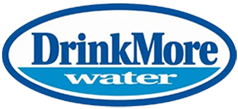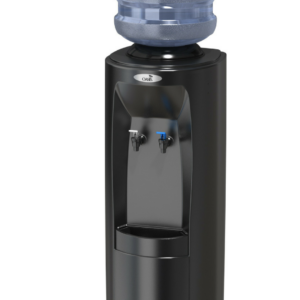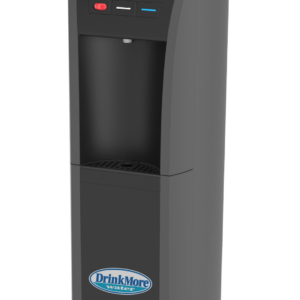FAQs
About Our Water
Why not just drink the tap water?
You can certainly do just that. The local tap water usually meets federally mandated guidelines for drinking water and it’s certainly less expensive than bottled water. However, it has many impurities in it. It has chemicals – like chlorine – added to it. And many people don’t enjoy the way it tastes.
I always get a laugh from the water that restaurants serve. Nice restaurants always pride themselves on the quality of their food, but they always start you off (or at least most of the time) with a glass of water straight from the tap. It can taste awful. Makes you wonder how good their food is going to be.
Tap water is obviously a very important service provided to the community. It’s used to help fight fires, wash clothes, flush toilets, water lawns and take showers. The problem is that every single gallon of tap water must meet minimum standards. The local authorities don’t know whether you’re going to drink a particular gallon or flush it down the toilet. So every gallons need to meet the minimum standards. Did you know that we drink less than ½ of one percent of all the tap water produced?
It is true that you can save money by using tap vs. bottled water.But when 70% of your body is compromised of water and water is vital to your quality of life – then you should treat yourself and choose the best, choose the highest purity, choose DrinkMore! (You can still use the tap water to wash your car and take a shower!)
Why should I drink DrinkMore Purified Water instead of Spring Water?
That’s easy – because it’s so much healthier for you. We take out all of the impurities typically found in spring water and tap water, so you know exactly what you’re getting – pure and fresh H2O every time. Spring waters fluctuate in quality because the aquifers from which they emanate are constantly in a state of change.
Haven’t you wondered why spring water companies never talk about purity? The reason is that they can’t compete with us on purity. They want to talk about “natural” – let’s get something straight – the Potomac River is “natural” but I certainly wouldn’t scoop out a big glass and drink it. And neither would you. You’ve also heard how spring water sources are in “protected areas”. The reality is that springs are recharged via the hydrologic cycle – evaporation (cloud formation) and then condensation (rain) etc. and rain is how the atmosphere is cleansed of its contaminants. It’s obvious that even remote areas (like the Adirondack Mountains) receive tremendous amounts of acid rain and other contaminants. The geology of the area can help filter out some of those contaminants and add others. But to say that spring water is pure is purely marketing hyperbole.
Many people drink spring water because they simply don’t know how to choose which water to drink. Our job at Drinkmore is to give you the knowledge and tools to make an educated decision. Why do people buy bottled water – some buy for convenience, but most buy it because they think it’s higher in purity than tap water. That’s not always the case with spring water – in fact, there are some spring waters that have so many impurities that they wouldn’t even meet the tap water standards in this country.
Think of it this way – your body is an extremely complex filtering system. Why put things into that system that you simply don’t have to? Things like nitrates, bromates, metals, inorganic chemicals, sodium, etc. The purer your water, the less filtering you need to do.
If you want to make a true comparison between our purified water and their spring water, ask them for a copy of their complete bottled water analysis. That’s apparently tougher for them to find than a deer tick.
We start with tap water that meets all federal standards for potability – that’s where we start. When we’re done, our purified water meets purity standards that are far higher than any spring water can achieve. That FDA standard is called “Purified Water”. Spring waters can’t hold a candle to that standard.
What about home filter systems and the little filters you put on your faucet or put into a pitcher?
Portable filtration systems take one step toward improving the quality of the water you drink, but they are just that – a first step. One of the basic tenets of DrinkMore Water is that the purer the water, the better (LINK to The DrinkMore Story). The primary filtering component found in most portable filtration systems are activated carbon granules. These carbon granules reduce, but don’t completely eliminate chemicals such as chlorine, VOC’s (Volatile Organic Compounds), and THM (trihalomethanes).Some contain additional material that can kill bacteria or at least filter it out. Carbon filtration systems can reduce or remove chlorine whether chlorine is reduced or removed depends on the quality of the system. The removal of chlorine improves the taste and smell of your water, but other impurities are tasteless and odorless and could still be present. DrinkMore Water’s purification process combines 3-stages of carbon filtration with 7 other purification technologies including ion exchange and reverse osmosis. The result is 99.9% pure bottled water – the purest on the market (LINK to Water Analysis Report & LINK to our purification technology).
So why should you switch? For your health of course! The human body is comprised of approximately 70% water. Water is essential to almost all the processes which take place in your body. You can go months without food, but even a day without water and your health begins to deteriorate. Given the importance of water to your well-being, we believe that it only makes sense to choose the purest, most high-quality water – choose DrinkMore Water.
Do I need minerals in my water?
Another great question. Let’s start with what exactly are minerals? Minerals are inorganic substances (such as rocks and similar matter) found in the earth strata, as opposed to organic substances such as plant and animal matter. Some familiar minerals are what we think of as “good minerals” – things like calcium, magnesium and potassium. There are also “not so good” minerals – at least as far as the human body is concerned – things like lead, arsenic, antimony, aluminum, barium, etc. So, we begin with the knowledge that all minerals aren’t necessarily good for you.
As you saw in the above definition of mineral, minerals are inorganic substances (like rocks). There is considerable debate in the scientific community as to the usefulness of these inorganic minerals in the human diet. You can get calcium from rocks mined from the earth or you can get it from dairy products and fruits and vegetables. That’s calcium from an organic source. The body can absorb nutrients (like calcium) from organic sources very well. It is much, much less efficient to get your minerals from inorganic sources because the body can’t absorb them as well. (That’s why you hear stories about vitamin pills passing right through your body undissolved – because they are tough little rocks that the body cannot process quickly). Milk, cheese and oranges get processed very quickly.
So, back to the issue of minerals in your water. Do you really need them? From the above information, you could conclude that the inorganic minerals sometimes found in water (both tap water and spring water) aren’t very useful to the body. But another question is how much of those minerals are even in the water? Not very much with respect to what the body needs.
For example, let’s take a famous spring water (famously expensive!) from the French Alps – it has around 35 milligrams per liter of calcium in it. The minimum Recommended Daily Allowance (RDA) for an average person is 1,000 milligrams per day. If you have degenerative bone issues, you’ll want to be higher than that (older persons are encouraged to get 1,200 milligrams per day). So, if the inorganic calcium from your spring water were able to be processed 100% efficiently by the human body (which it cannot), it would take 28.57 liters of water (1,000 milligrams divided by 35 milligrams per liter (calcium in the French Alp water) to get your minimum daily allowance of calcium. That’s more than 7 gallons a day!!!
That is only half of the answer. In addition, not every mineral is good for you. Mother Nature, when she deposited all of these minerals didn’t bless one area with all of the good minerals and curse another area with all of the bad minerals. They’re laid down together. So with the good, come the bad.
At DrinkMore Water, our philosophy is to make sure that you don’t get any of the bad minerals and contaminants. We make very pure water. It tastes better because it’s pure.
Why does DrinkMore Water taste so much better than spring water?
Much higher purity, period. With our water, you taste nothing but pure water. With spring waters, you get these various tastes associated with all of things found in their waters. All of the impurities found in each different spring water make up a cocktail of taste. You might like one type and strongly dislike another. It’s based upon how those molecular impurities taste to your taste buds. You simply don’t have that problem with our water. It’s always clean, crisp and pure – the same thing every time. Beautiful!
Should I worry about lead in the tap water?
Lead in tap water is such a huge health problem in this area that it cannot be stressed enough how important it is that you NEVER drink water that you suspect has lead in it. Lead and many other heavier metals do not readily leave the body. Once you ingest it, it’s yours forever. If you want the details on exactly what lead will do to you, do a search on “health problems of lead in tap water”. If you suspect you have lead in your water, get it tested ASAP! And until you get the results, drink bottled water!!!!!
How does lead get into the water supply?
There are several different ways lead can get into the water supply. The most important thing to understand is that when water leaves the treatment plant, it does not have lead in it. Once it travels through the pipes to get to your home is when it may appear. It may be from a lead connector pipe that connects your home pipe to the city pipe or from lead solder used in older copper plumbing (pre-1986). Lead can even leach into the water supply from older brass faucets and fixtures, because lead used to be used in the manufacturing process to make brass.
Does your water have fluoride in it?
That is a great question and the answer is long – but please read it all! The short answer is no. There are many people who think fluoride is the best thing since sliced bread and there many people who think that fluoride is so toxic it will kill. Everyone agrees, however, that too much fluoride is definitely a very bad thing. The FDA has set a maximum contaminant level for fluoride in bottled water – that’s how concerned everyone is about getting too much of it.
Here are a couple of interesting points. First, fluoride is a prescription drug that you cannot buy at the drug store unless prescribed by a doctor. That has always made us wonder why the local water authorities are able to put it into the tap water in the first place. There is fluoride in most toothpastes but the amount of fluoride in toothpaste has dropped by more than 85% during the last fifteen years. Why? Because people were getting too much of it. When you get too much of it, your teeth can begin to mottle (turn brown) and fluoride can make your bones more brittle.
On the other hand, most dentists and the American Dental Association recommend fluoride toothpaste, fluoride treatments, etc. Who is right and who is wrong? We don’t pretend to know. We just know that you should have a choice about it. Do your own research to draw your own conclusions. Type “fluoride dangers” and then “fluoride benefits” into your friendly search engine. Read all about it.
If you conclude you an/or your children want more fluoride, you should probably get a prescription written by your doctor so that you can give EXACTLY the right amount. Children have much smaller blood volumes than adults, so they don’t need the same amount or the same concentration.
Finally, fluoride (in almost every form) tastes absolutely awful. The only reason you don’t taste it in tap water is because of all of the other impurities in tap water that mask its taste.
How do we ensure the consistency and purity of DrinkMore Water?
First of all, our purification and bottling facility is regularly inspected by the FDA, the Maryland Dept. of Health and Hygiene (that’s the state Health Department), and the Montgomery County, MD Health Department. We have gone through 1st round inspection by NSF International as a precursor toward obtaining IBWA certification.
Second, ours is a purification and manufacturing process that positively reduces contaminants along the way. There are dozens of sensors and monitors in our system which eliminates any possibility of contamination or substandard water. Our consistency and quality is legendary. If you have a chance, you should come by and take a plant tour.
Do you carry glass bottles?
Do your bottles have built-in handles?
Yes! We have always used bottles with handles. In fact, we were the very first water company in the country to provide them exclusively to every single customer! They are simply the best – easy and convenient for everyone. Bottles with handles not only help to prevent back injuries, but they also greatly reduce bacteria from forming around the neck of the bottle, since the delivery guy’s hands are using the handle and not the neck of the bottle. It’s the safest way to go!
About Our Outstanding Delivery Service
How quickly can I get my service started?
This will depend on your location. One of our friendly sales representatives will work with you to schedule the earliest delivery date possible.
What if I’m not home?
We can leave the bottles wherever you’d like – backyard, front door, side of house, in the garage – where is more convenient for you.




